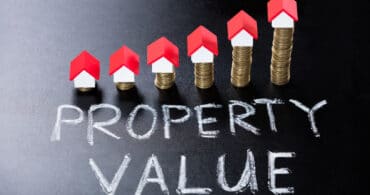Survey Reveals the Current Mood of the Private Rented Sector
A recent survey of over 14,000 landlords, tenants and letting agents, conducted by deposit protection service mydeposits and deposit replacement membership Ome, has revealed some interesting insights into the current mood of the private rented sector.
A recent survey of over 14,000 landlords, tenants and letting agents, conducted by deposit protection service mydeposits and deposit replacement membership Ome, has revealed some interesting insights into the current mood of the private rented sector.
A recent private rented sector survey of 14,200 landlords, tenants and letting agents conducted by mydeposits and Ome has examined challenges in the market, the impact of the pandemic, regulation, government support and the relationship between landlords and tenants. The results make for interesting reading.
Landlord-tenant relationships
With regard to tenant opinion on their relationship with their landlords, the average rating was 7.4 out of 10.
Looking at this from the opposite perspective, 30 per cent of landlords and letting agents rated their relationships with their tenants 9 out of 10, and 29 per cent rated them 10 out of 10.
Renting ‘good value for money’
When quizzed as to whether renting offers value for money, 51 per cent of tenants believed that it does, and that its flexibility and lack of responsibility for maintenance costs were important factors in this respect.
Over two thirds of tenants did aspire to eventually owning their own homes however, citing affordability as the only reason they had not already made the move.
Pandemic effects on the private rented sector
In terms of the impact of COVID-19, 95 per cent of tenants reported that they were not in arrears as a result of the pandemic. Of those who did struggle in some way, 58 per cent said that their landlord had been accommodating, with 31 per cent offering them a rent holiday or rent reduction.
31 per cent of landlords and letting agents did however report that their tenants were in arrears due to the pandemic. Both identified rent arrears as one of the most significant challenges in the private rented sector, together with legislation.
Landlords and tenants in it for the long haul
80 per cent of landlords surveyed said they’d been operating in the private rented sector for over five years, and 79 per cent were confident that they would stay there for the next five years. Almost two thirds however did express concern over changes within the industry, especially in terms of regulation, legislation and taxation.
Indicating a preference for longer term lets, 51 per cent of tenants said they’d only rented their current property or one other over the past five years. Those who moved more frequently mostly cited their job as the main reason.
Lettings market remains positive, despite recent challenges
Suzy Hershman is head of dispute resolution, at mydeposits. Commenting on the survey, she said: “In spite of challenges faced including legislation, rent arrears, and evicting tenants, it is evident that the majority of landlords want to remain in the sector because it provides a good source of income and an investment for retirement, making it a worthwhile endeavour.
“From a tenant’s perspective, the cost of renting is a key factor for those with a negative outlook of the sector. It could be suggested that the high costs and affordability issues felt by tenants manifest as rent arrears for agents and landlords making the problem cyclical. However, renting is also providing a solution to those who cannot afford to buy whilst offering flexibility.”
Co-founder of Ome, Matthew Hooker, added: “The results of the survey have highlighted the strengths of the market and reinforces that the vast majority of tenant-landlord relationships remain positive.”
Concerned about rent arrears? Want to offload the burden of regulation? Guarantee your rent with homes2let, and we’ll take care of everything.
If, like many landlords, rent arrears are one of your biggest worries, there is something you can do to alleviate that concern.
Our guaranteed rent scheme involves us letting your property to local authority tenants through our long term contacts in the local housing departments. You will be paid every month by standing order, even during void periods, taking away all your risk and day to day hassle, and replacing it with peace of mind. We’ll even take care of all your property management responsibilities, including taking the burden of legislative and regulatory compliance off your shoulders.
To learn more about how the homes2let guaranteed rent scheme, please get in touch with our Croydon based property experts.
Related Insights
UK House Prices Witness a Decline in March: Insights from the Latest Halifax Report
Explore the latest insights on the UK housing market downturn in March, with detailed analysis from the Halifax report, implications for homeowners and buyers, and future outlook. Uncover the key factors driving house prices and regional variations in this comprehensive guide.

Professional vs DIY Property Inventory: Which is Best for Landlords?
A property inventory is beneficial to both landlords and tenants, and is vital when it comes to preventing and resolving disputes at the end of a tenancy. But what are the differences between a landlord DIY inventory and a professional report, and what are the risks involved in self-reporting?

Property Value Growth in England Spells Good News for Buy to Let Investors
The values of homes across England have increased by 80 per cent in the past decade. The rental market specifically has grown 105 per cent to represent a staggering value of £1.5 trillion, with £529 billion of that in London alone. With growth like this in the rental sector, it would seem those investing in buy to let property are set to win hands down.







